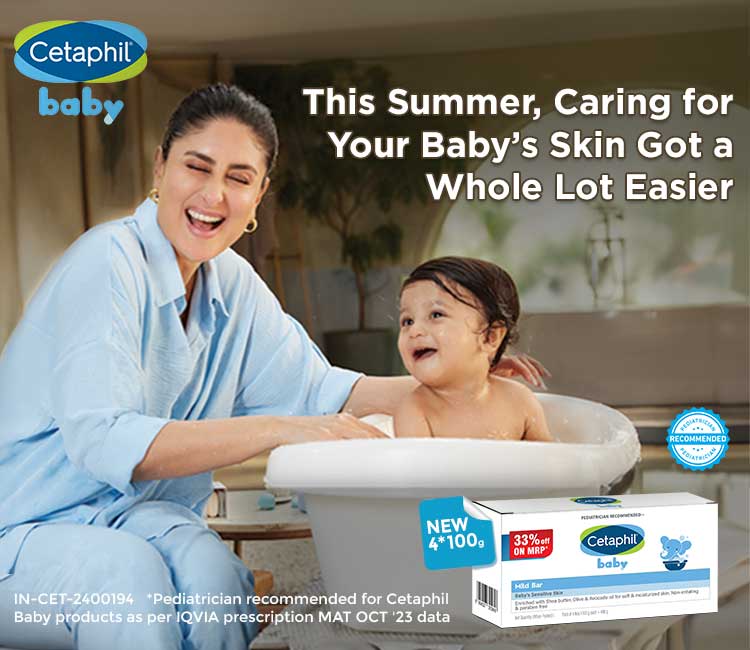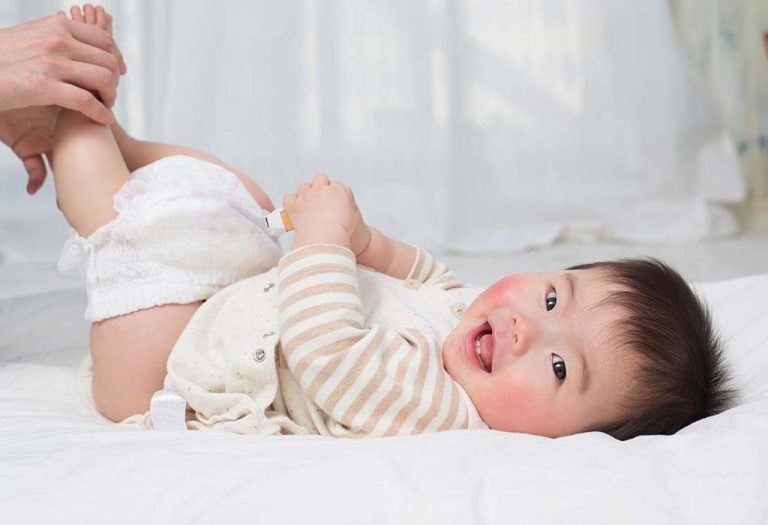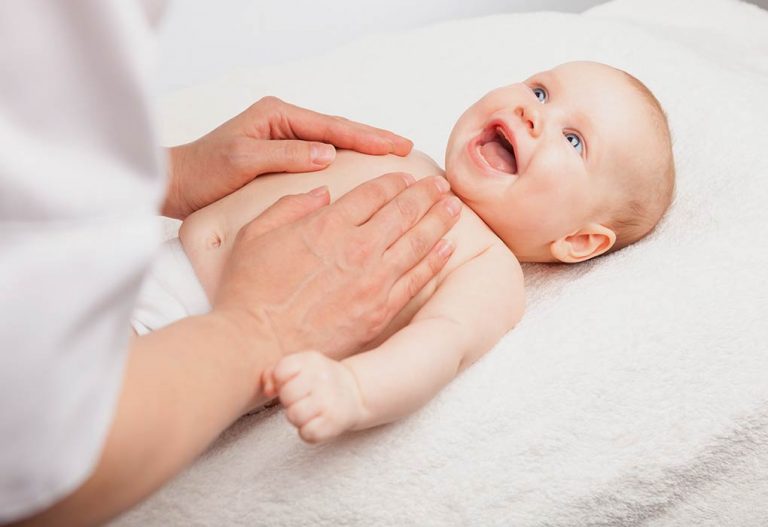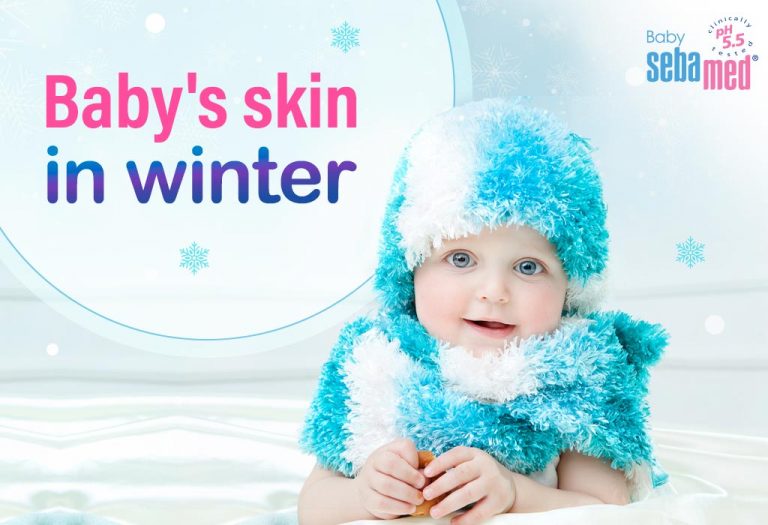This Summer, Caring for Your Baby’s Skin Got a Whole Lot Easier
Summers bring sweat, heat rashes, sunburns, diaper rashes, and a whole lot of germs on the skin. While protective clothing and sunscreens are highly recommended during hot weather, keeping the skin clean and healthy with the right soap is just as important. Unlike adult skin, a newborn baby’s skin is 30-40 times thinner and has less hydration. Because of their skin’s vulnerability to rapid moisture loss, dehydration, and dryness, especially in summer, their skin calls for delicate care. Cleansing plays a vital role in keeping the skin healthy, dirt and germ-free, and hydrated while maintaining the pH balance of your baby’s skin.
Dive in to learn more about cleansing baby skin and how to do it RIGHT!
Understanding Your Baby’s Fragile Skin
Skin is a vital barrier of the body that protects individuals from invading microbes, UV rays, and dirt, regulates body temperature, and performs essential immunological functions. Since babies’ skin is thinner and has fewer natural moisturising factors (NMF) than adults, along with an immature stratum corneum (the external layer of the skin), it is prone to several skin problems (1). Moreover, the impaired barrier function of the newborn skin makes it highly vulnerable to chemical irritation and systemic infections than adult skin (2). Hot and humid conditions during summer elevate skin conditions, making them prone to dryness, rashes, and irritation. This is the reason babies need extra care for their skin during summer.
Summer’s Impact on Baby’s Skin
Summer is harsh on babies’ skin as hot, dry, and humid air strips away the skin’s moisture quickly, leaving it dry and itchy. Here are some everyday skin battles summers bring for babies:
- Heat Rash: Heat rashes and prickly heat are standard summer problems when the skin’s pores get clogged and sweat can’t escape. The rashes take the form of small red or pink bumps (3).
- Sunburn: From birth to the first five years of life, a baby’s skin undergoes various changes, making it vulnerable to environmental factors (4). Direct or excessive exposure to UV rays can cause sunburns and rashes.
- Diaper Rash: The diaper area is usually covered for babies till they are potty-trained. Consistent exposure to moisture, sweat, and powder ingredients in the area can lead to skin inflammation and itching (5) (6).
- Skin Infection: Excess sweating and perspiration in warmer weather could trigger eczema or lead to clogged pores and itchy skin, causing bacterial infections (3).
Why Harsh Soaps Are Not Good for Babies
Several commercial soaps marketed for adults contain innumerable harsh chemicals that strip the skin of natural oils and imbalance the pH levels, damaging the protective skin barrier. Coupled with summer heat, it leads to excess dryness, rashes, and irritation.
Benefits of Using Mild Bar Soap
When selecting a soap for your baby, look for hypoallergenic, dermatologist-approved, and fragrance-free options. The ideal soap or cleanser should have a neutral or acidic pH level and not irritate the eyes (7). Organic and natural formulations like shea butter and allantoin are preferable as they moisturise the baby’s skin without drying it excessively (8) (9).
The Cetaphil Baby Mild Bar is a uniquely formulated mild bar soap for babies that cleanses the skin without stripping away its natural oils. You won’t have to worry about the harshness of the soap as it is free from chemicals like parabens, phthalates, and sulfates. Its natural ingredients, including shea butter, glycerin, and avocado oil, moisturise the skin and prevent dryness, keeping your little one’s skin soft, hydrated, and moisturised. With a baby-skin-friendly pH of 5.5 and allergen-free formula, Cetaphil Baby Mild Bar is non-irritating, making sure your baby enjoys their bath time.
Key Ingredients to Look for and Avoid in Baby Soaps
While there’s a long list of ingredients to avoid, you can primarily look out for harmful chemicals, synthetic fragrances, and dyes, and avoid products that contain these.
|
To Look For |
To Avoid |
|
Glycerine |
Parabens |
|
Natural Oils, like Coconut oil, Avocado oil, Olive oil, and Shea Butter |
Sulphates |
|
Aloe Vera |
Artificial Fragrances and Dyes |
|
Chamomile |
Mineral Oil |
|
|
Alcohol-based Ingredients |
Tips to Bathe Your Baby in Summer Gently and Effectively
Routine bathing of infants and babies should be according to individual needs and regional and climatic conditions. Below are some tips that will ensure you bathe your baby safely and effectively without damaging their skin barrier (10):
- Bath time for babies should be limited to about 5-10 minutes to avoid moisture stripping from the skin, except during winter, when bathtime can drop down to twice or thrice a week (4).
- Use lukewarm water to bathe your baby.
- Make sure you bathe your baby thoroughly and clean all the folds (neck, underarms, and diaper area) so there is no soap residue left that could later lead to rashes or skin irritation.
- After a bath, use a dry towel to pat dry your baby gently from head to foot.
- Avoid using bubble baths or bath additives, as these are loaded with chemicals and could imbalance the skin’s pH and cause itching.
- Avoid bathing products containing harsh chemicals, perfumes, dyes, phthalates, and other chemicals.
Skin Care Tips for Summer
Keep these summer skincare tips for babies handy and thank us later!
- Moisturising After Bathing: Since babies’ skin loses moisture quickly, it should be rehydrated right after the bath. Baby-safe hypoallergenic lotions or baby creams hydrate the skin and form a protective barrier on the skin that prevents moisture loss and eczema, while keeping the skin soft and supple (11).
- Sun Exposure and Sunscreen: Summer heat can quickly cause sunburns when babies get direct exposure to sunlight during peak sunlight hours. Avoid direct sunlight exposure for babies under 6 months and keep them in the shade, lightly covered with a hat or lightweight cotton clothing (12). For babies above 6 months, you can use baby-safe sunscreen after consulting your paediatrician.
- Avoid Talcum Powder: Talc mixed with sweat could create a breeding ground for infection on baby skin, so it’s best to avoid powdering in the groin, neck, and arm and leg folds (4). Plus, breathing in talcum powder is a health risk for babies, as it can get to the lungs and cause severe damage (13).
- Hydration: Along with external hydration, your baby needs internal hydration as well during summer. Breastfeed/formula feed sufficiently during hot weather (14).
- Diaper Change: The diaper area should always be kept clean and dry, with frequent diaper changes. To avoid rashes and inflammation, apply diaper rash cream on the folds of skin in the diaper area.
- Keep a Cool Environment: Ceiling fans or air conditioners keep your house and baby’s room cool and comfortable. Dress your baby in soft, lightweight, breathable cotton clothes to absorb moisture and keep the skin healthy (15).
Caring for your little one’s skin during summer is more than protecting it from sunlight. Your baby’s first skin battle is with its surroundings, and hot and humid weather can do significant damage in the form of heat rashes, prickly heat, and sunburn. Cleansing with a mild bar ensures getting rid of sweat and dirt while keeping the skin nourished and healthy. With Cetaphil Baby Mild Bar as your first defence against summer discomfort, you and your baby will surely have a breezy summer!
References/Resources:
2. PubMed Central – Skin Physiology of the Neonate and Infant: Clinical Implications
3. American Academy of Pediatrics – 12 Common Summertime Skin Rashes in Children
4. Indian Pediatrics – Indian Academy of Pediatrics Guidelines for Pediatric Skin Care
5. Nemours KidsHealth – How to Treat Diaper Rash
8. Cleveland Clinic – 6 Incredible Benefits of Shea Butter
9. Cleveland Clinic – What Is Allantoin? And What Does It Do for Your Skin (and More)?
11. American Academy of Pediatrics – Bathing Your Baby
12. American Academy of Pediatrics – Baby Sunburn Prevention
13. Bundesinstitut für Risikobewertung – Talc-containing baby powder is a health risk
14. Children’s Health – Keeping your baby safe and cool in summer
15. The Women’s – Heatwave precautions for babies & young children
Was This Article Helpful?
Parenting is a huge responsibility, for you as a caregiver, but also for us as a parenting content platform. We understand that and take our responsibility of creating credible content seriously. FirstCry Parenting articles are written and published only after extensive research using factually sound references to deliver quality content that is accurate, validated by experts, and completely reliable. To understand how we go about creating content that is credible, read our editorial policy here.













.svg)


















